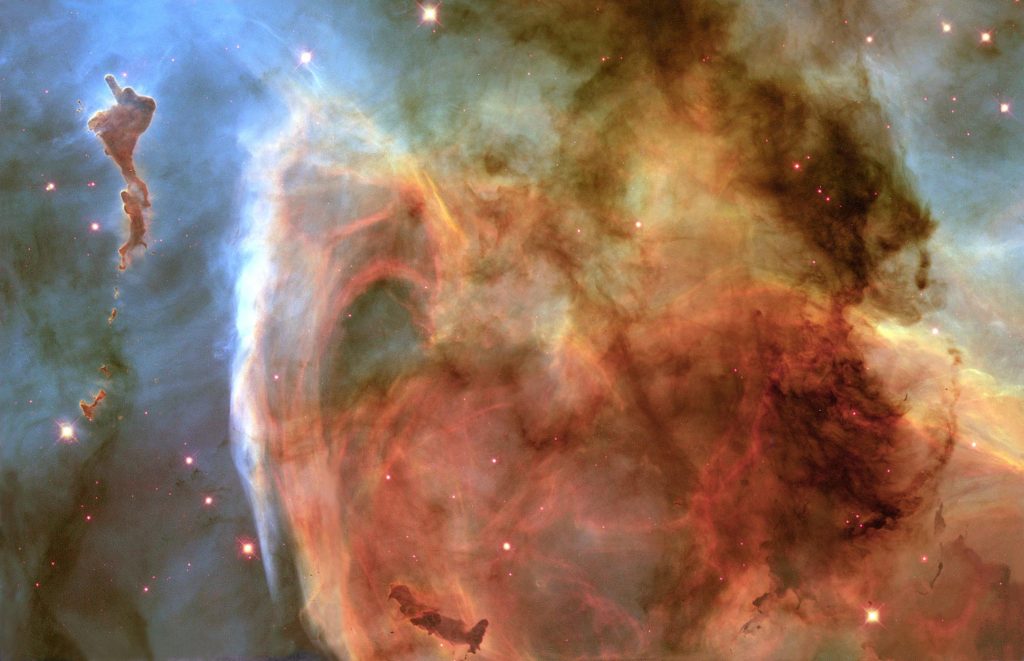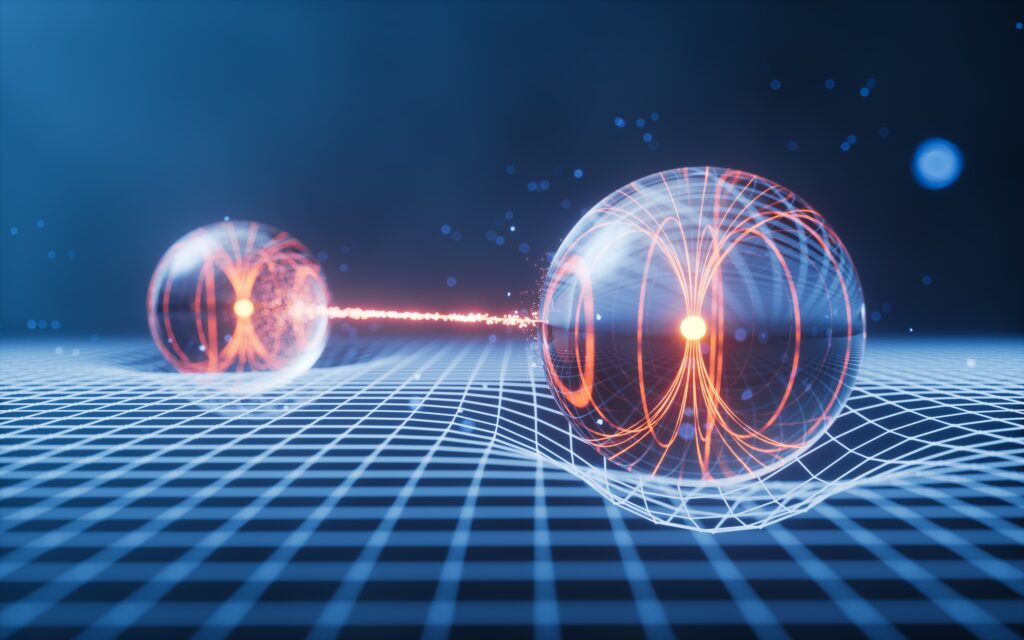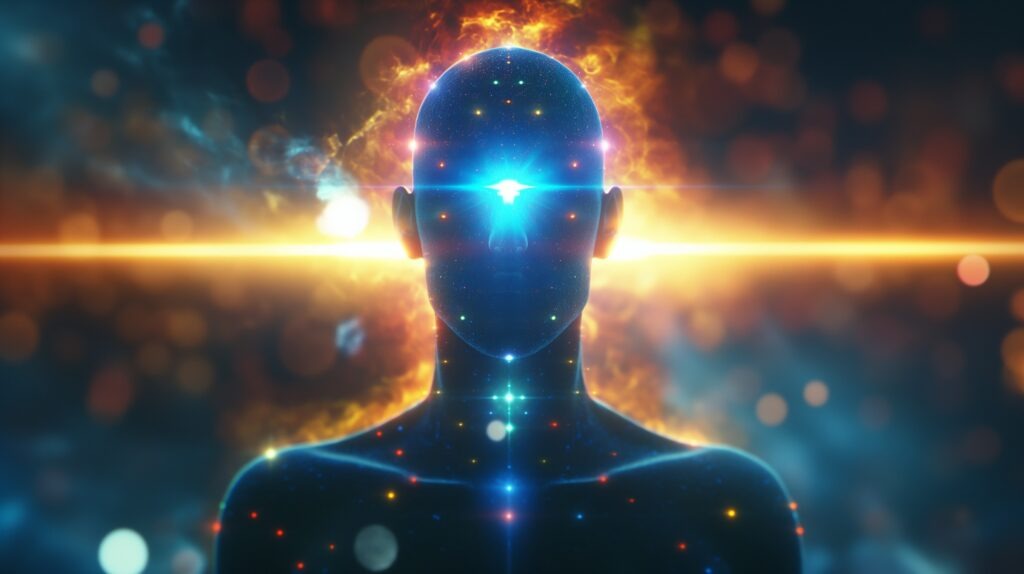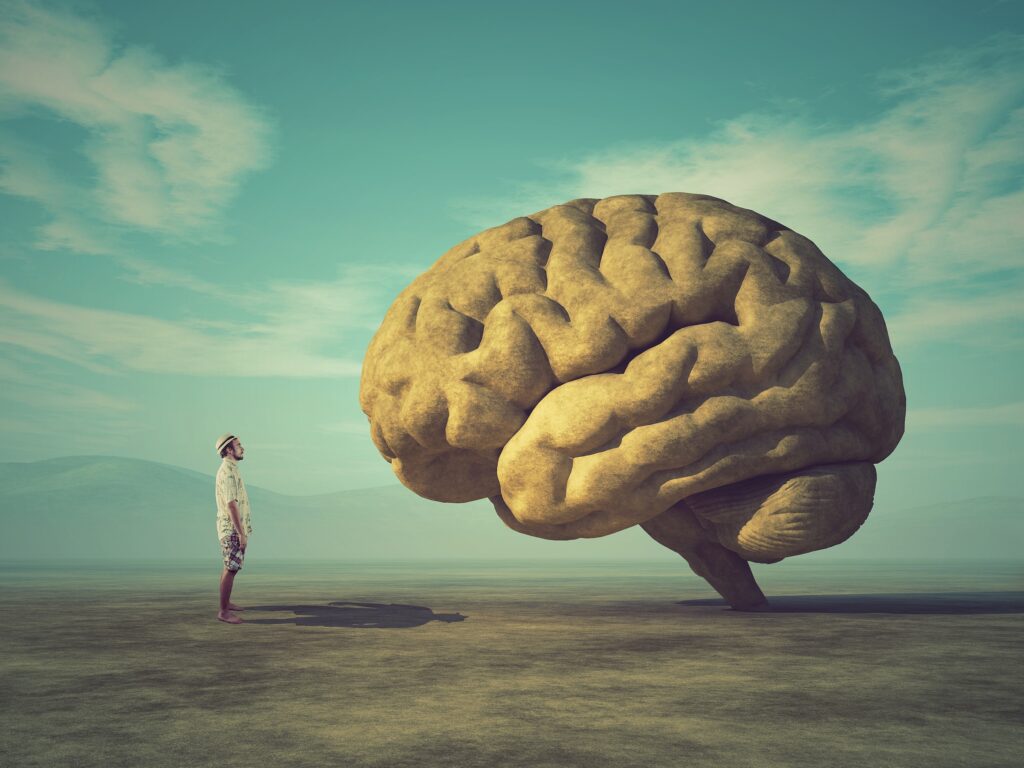|
Physicist Dr. Lídia Del Rio, Essentia Foundation’s Research Fellow for Quantum Information Theory at the University of Zürich, explains to Hans Busstra one of the strangest quantum conundra confronting the foundations of physics: the Frauchiger-Renner (FR) thought experiment.
|
Dr. Dolezal invites us to consider the uncanny similarities between the ancient stories of creation, across many religious and philosophical traditions, and how the human imagination, when prompted or triggered by words, creates entire universes.
|
Hans Busstra interviews theoretical physicist and complexity scientist James Glattfelder on his new book: ‘The Sapient Cosmos: What a modern-day synthesis of science and philosophy teaches us about the emergence of information, consciousness, and meaning,’ published by Essentia Foundation. Glattfelder makes a plea for ‘syncretic idealism’: a worldview that synthesises ancient idealist texts and mystical experiences with physics, complexity science and analytic idealism.
|
With humanity at a crossroads, we are invited to ponder a novel vision of existence that inspires wonder and ethical accountability. A radical and groundbreaking perspective emerges, challenging conventional beliefs by placing consciousness at the foundation of reality. In this essay, Dr. Glattfelder delves into some ideas meticulously researched and carefully presented in his latest book, ‘The Sapient Cosmos: What a Modern-Day Synthesis of Science and Philosophy Teaches Us About the Emergence of Information, Consciousness, and Meaning,’ published by Essentia Books.
|
This interview explores the fundamental premises of Analytic Idealism. Dr. Bernardo Kastrup, known for developing this philosophical system, discusses the nature of consciousness, life, God, and AI with Natalia Vorontsova. All questions are based on input from our audience.

Do we really live in a fundamentally physical universe? Are we essentially material beings? Essentia Foundation is a new force in the cultural dialogue about the nature of reality. Find out more about us.
|
Much of the discord in today’s philosophical debate on the nature of mind and reality arises not from argument, but from a peculiar mindset that prevents some from explicitly cognizing their own consciousness, argues Arthur Haswell. This mindset relates to Cotard’s syndrome (the rare delusion of being already dead) and necrophilia (a love for all that is mechanical and inanimate, as opposed to alive and organic). Haswell suggests that it may be as futile to argue against this mindset as it is useless to explain color to someone born blind.
|
Natalia Vorontsova explores the mystery of death and its relationship with non-ordinary states of consciousness, such as tukdam and NDEs, including those reported by young children.
|
As any essay on free will, the present one is bound to be polemic. We believe the debate on free will is important and the present essay meaningfully contributes to it. Nonetheless, we feel bound to clarify our editorial position here: as a foundation dedicated to promoting objective formulations of metaphysical idealism, we endorse the existence of a reality beyond the seemingly personal self, which behaves in a predictable, lawful manner. An implication of this view is the impossibility of libertarian free will: we do make our own choices, but our choices are determined by that which we, and the universe around us, are. Yet we believe that there is a very important sense in which free will does exist: under idealism, the universe is constituted by the excitations of one, universal field of subjectivity. The impetus towards self-excitation that characterizes this field of subjectivity is free will, for it depends on nothing else. The entire dance of universal unfolding is a dance of universal free will. This is the sense in which, for example, Federico Faggin and our own Bernardo Kastrup defend the fundamental existence of free will in nature. This understanding of free will is entirely compatible with the understanding that our choices are determined but that which we truly are. Finally, objective formulations of metaphysical idealism deny, just as the author of the present essay does, the fundamental existence of a personal self. Instead, the latter is regarded as a transient, reducible configuration of the underlying field of subjectivity. As such, there cannot be such a thing as personal, egoic free will, for the personal self itself isn’t a fundamental construct.
|
Essentia Foundation’s Hans Busstra visited Vienna to attend a conference on the foundations of quantum mechanics, and interview physicists on the metaphysical implications of quantum mechanics. In this essay, he argues that what is called ‘experimental metaphysics’ might be at the heart of future progress in physics, and that philosophy and physics are moving closer together.
Would you like to submit an essay?
|
Hans Busstra interviews theoretical physicist and complexity scientist James Glattfelder on his new book: ‘The Sapient Cosmos: What a modern-day synthesis of science and philosophy teaches us about the emergence of information, consciousness, and meaning,’ published by Essentia Foundation. Glattfelder makes a plea for ‘syncretic idealism’: a worldview that synthesises ancient idealist texts and mystical experiences with physics, complexity science and analytic idealism.
Seeing
Videos
|
Hans Busstra sat down with John Vervaeke to discuss the meaning crisis, the Zombie myth we’re in, and how it all relates to what Vervaeke calls “rabbit hole metaphysics”: the conspiratorial, outlandish and often absurd ideas people start believing in, in search of meaning. A characteristic of rabbit hole types of metaphysics is that they have a ‘thick’ description of reality: a constellation of ungrounded assumptions build up to a ‘once you get this, there’s no way back’ narrative, which repeats itself in online echo-chambers.
|
Two giants of science and technology—Nobel Laureate in physics, Sir Roger Penrose, and inventor of the microprocessor, Federico Faggin—meet to discuss their ideas on the relationship between Quantum Physics and consciousness, with the special participation of our own Bernardo Kastrup. While always respectful and congenial, the participants don’t shy away from disagreements. Their starting difference regards Quantum Theory itself: while Federico Faggin and Bernardo Kastrup allow its implications to inform their views, Sir Roger Penrose believes the theory itself to be at least incomplete and require further development. The discussion helps pin down and make explicit the fine points of the three gentlemen’s respective ideas regarding consciousness.
|
What if your child could feel their friend’s headache in their own head? Would you be able to explain where the boundaries of self begin and end? Or how would you react if your child experienced ‘loving darkness’ during an NDE? Natalia Vorontsova explored these and other fundamental questions about the nature of reality, consciousness, and science with a researcher of children’s transpersonal and extrasensory experiences, Dr. Donna Thomas.
From the archives
|
Neuroscientist Dr. Christof Koch’s latest book has a title quoting the second act of the famous opera, Tristan und Isolde: “Then I Am Myself The World.” In this book Koch describes how he, during a psychedelic experience on 5-MeO-DMT, felt that he was one with the universe, which echoes the epic tale by Wagner. Essentia Foundation’s Hans Busstra interviewed Koch on his book, his psychedelic trip and, of course, Integrated Information Theory (IIT), the scientific theory of consciousness Christof Koch and Gulio Tononi are famous for.
|
Philosopher Ola Nilsson is back with another one of his mind-boggling, and yet irresistibly compelling, thought experiments. This time he shows, with surprisingly few words, how one universal mind can appear to be many, such as you and I, simply because of time and will. Buckle up for this amazing ride!
|
Arthur Haswell offers a devastating and delightfully well-argued deconstruction of the absurdities inherent in physicalism and its sibling, illusionism.
Let us build the future of our culture together
Essentia Foundation is a registered non-profit committed to making its content as accessible as possible. Therefore, we depend on contributions from people like you to continue to do our work. There are many ways to contribute.




















